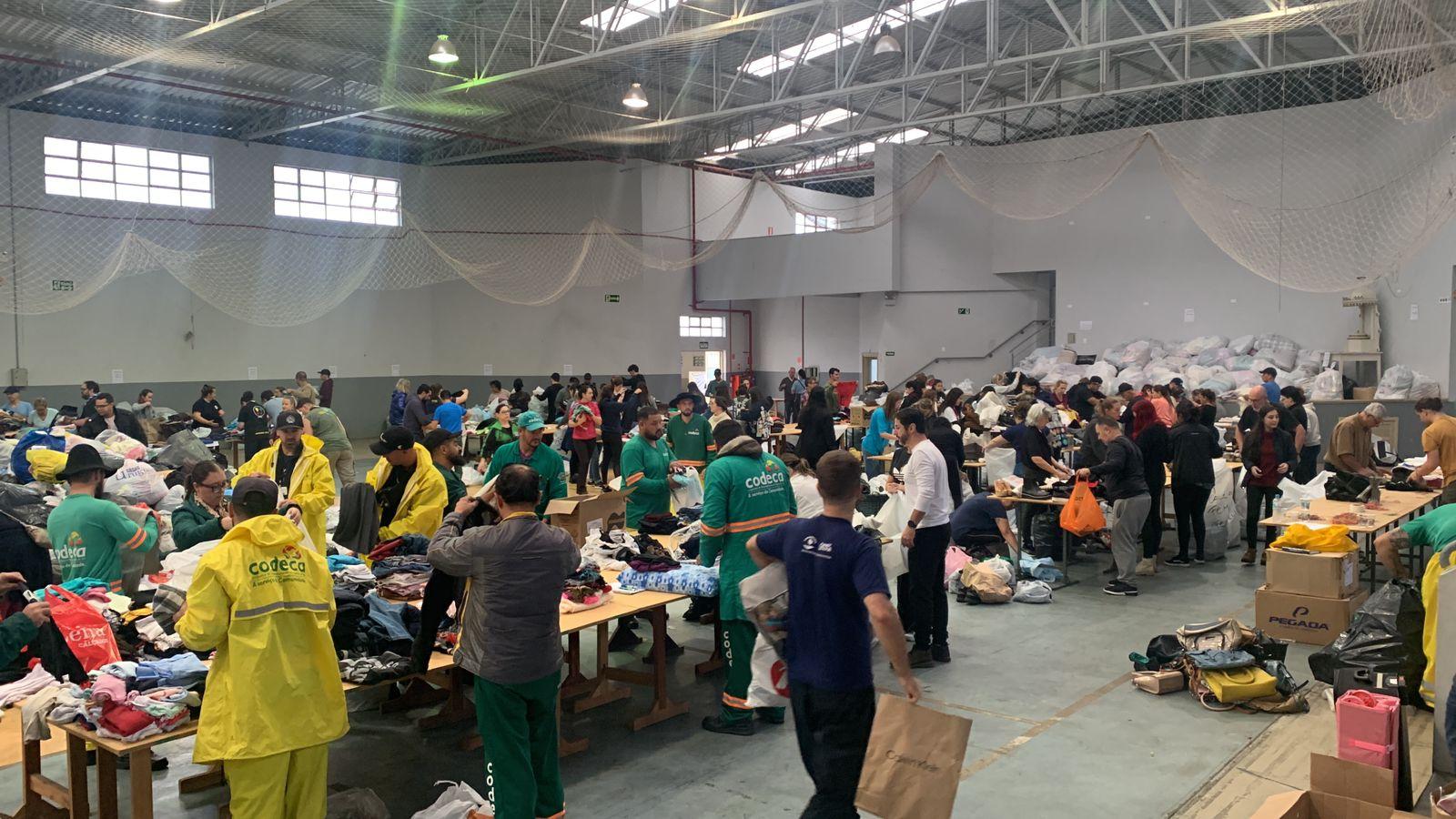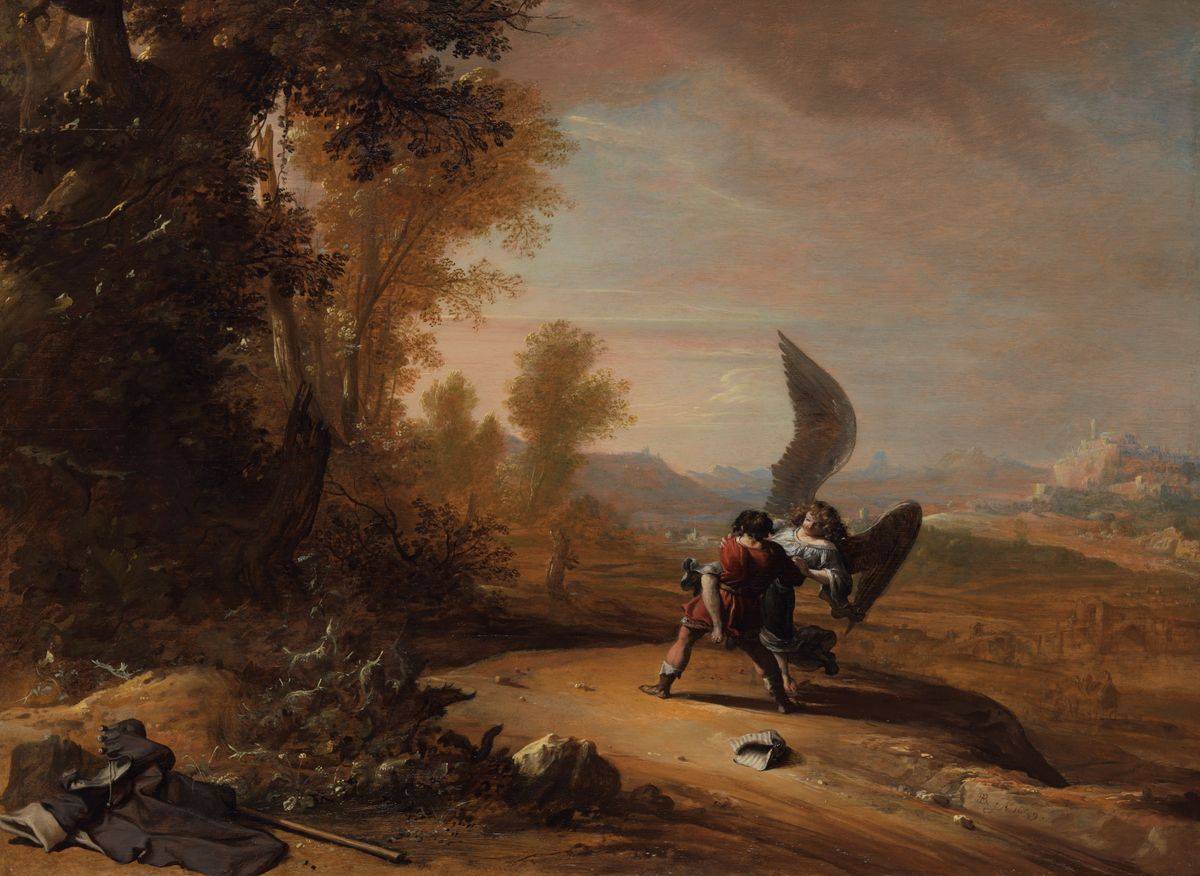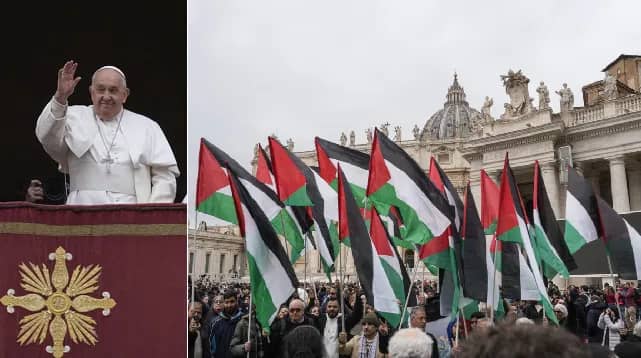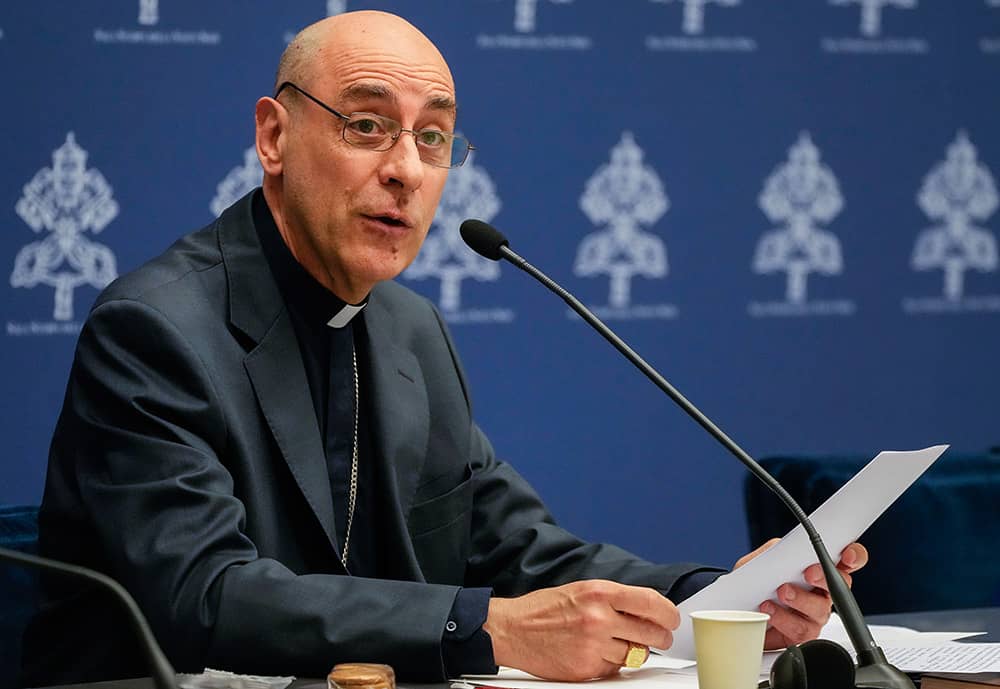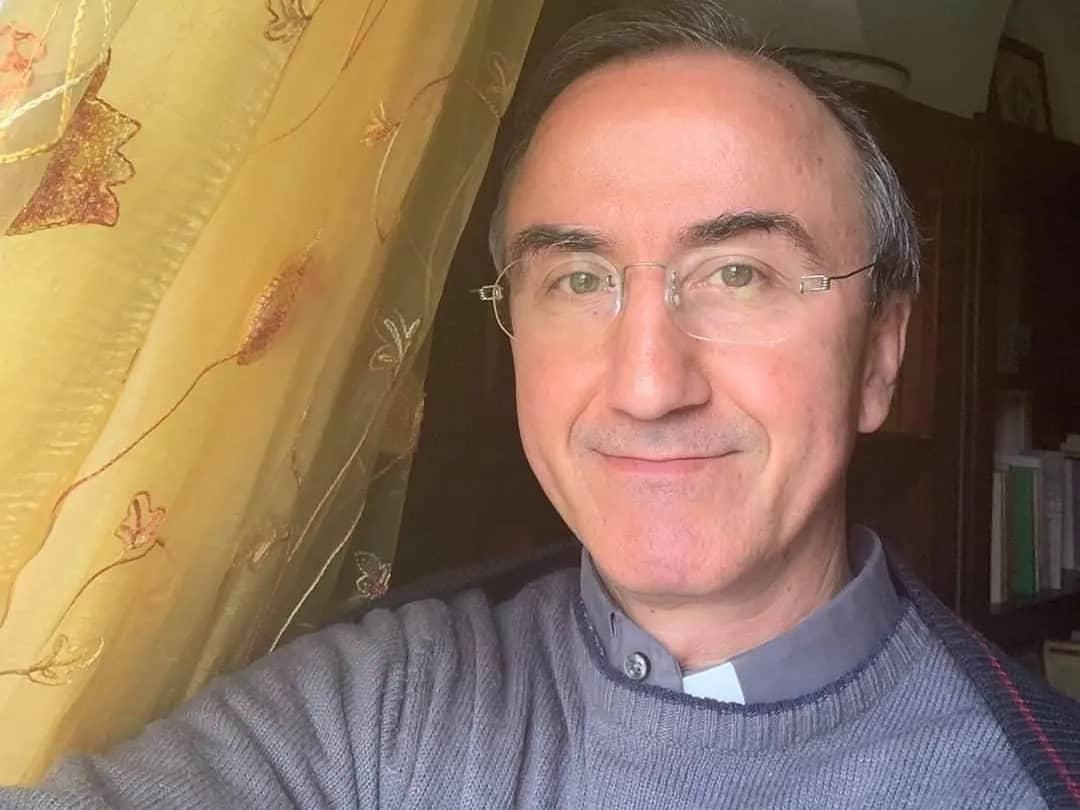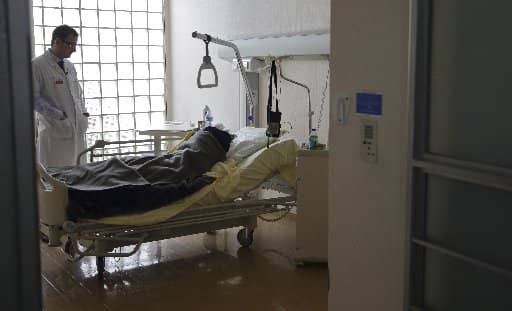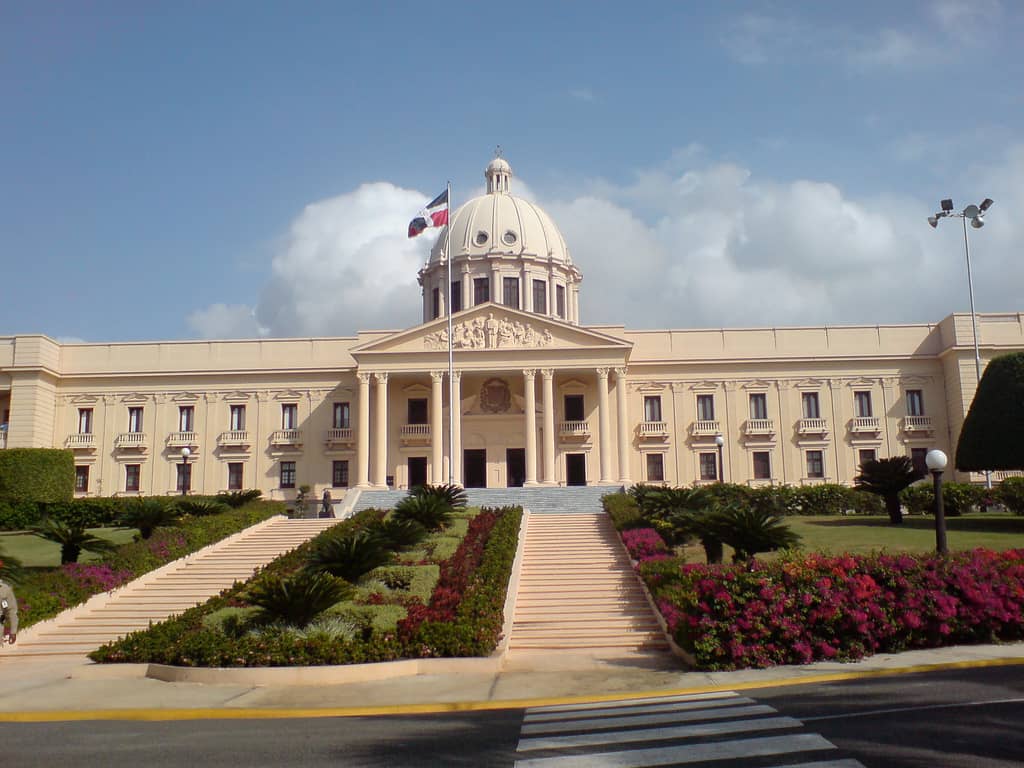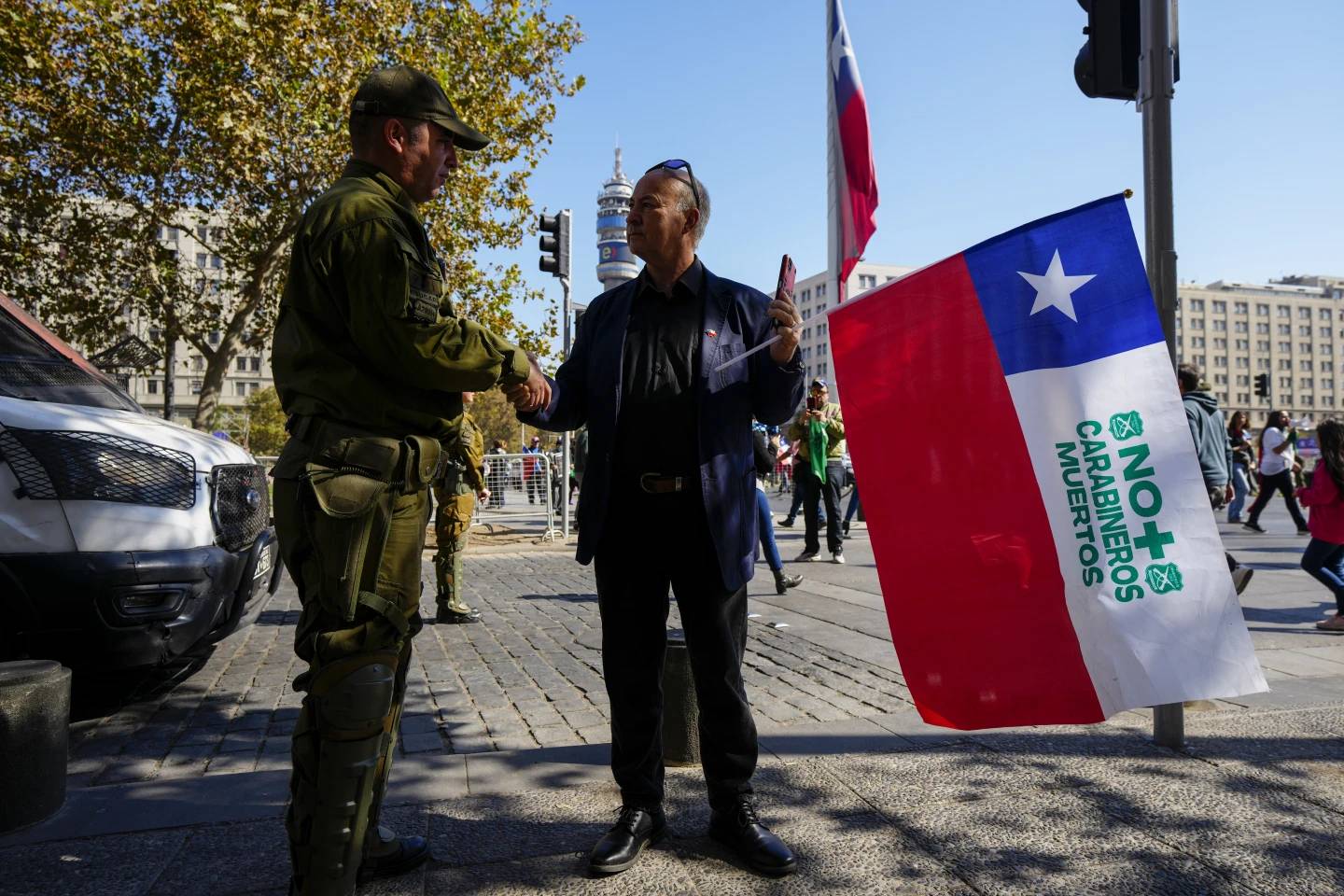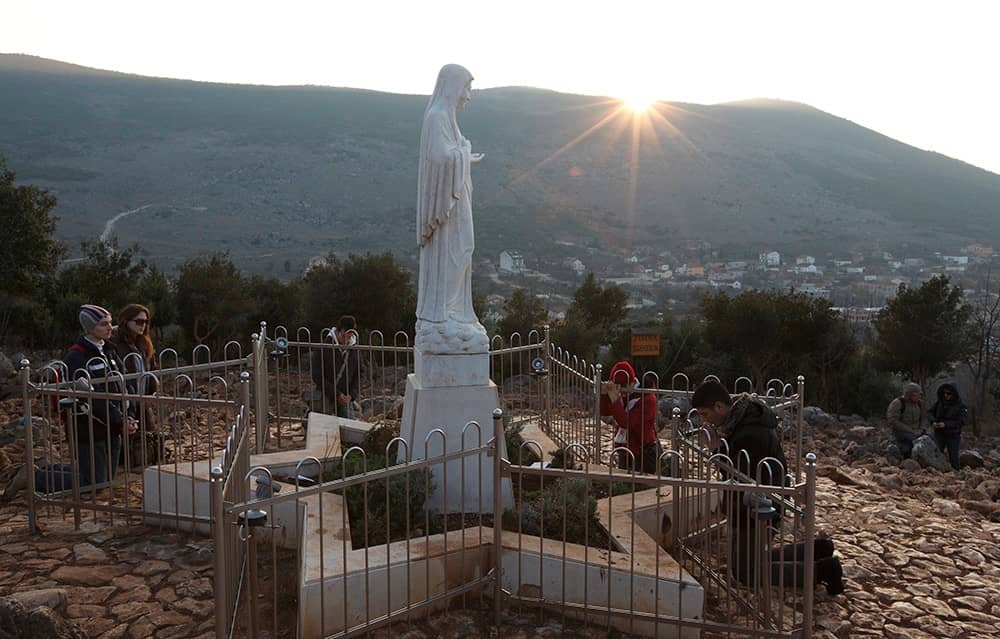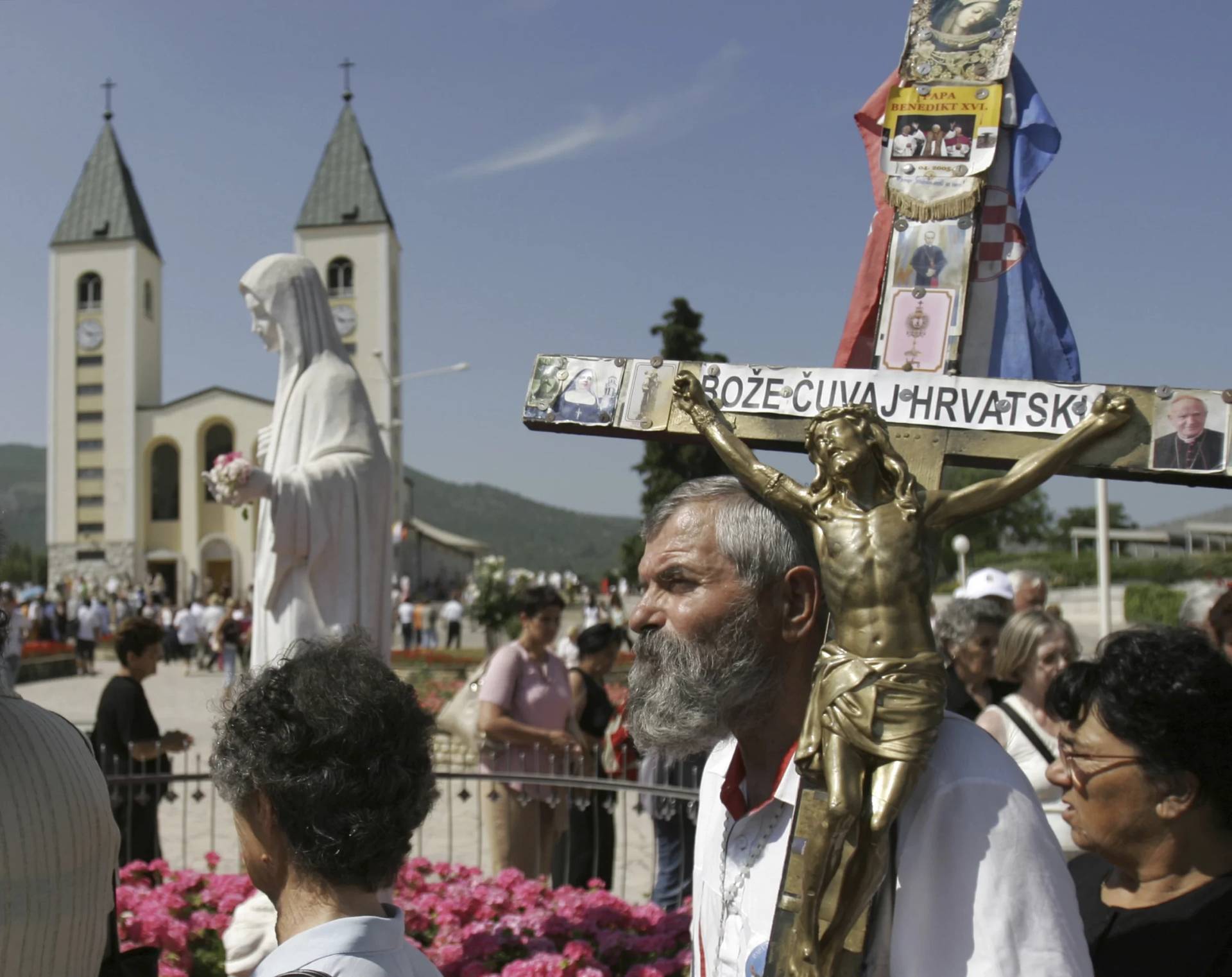SÃO PAULO – Several days of heavy rains have caused floods in more than 400 cities and led over 200,000 people to leave their homes in the Brazilian state of Rio Grande do Sul.
The catastrophe – already considered the worst climatic crisis in the state’s history – has killed at least 85 people since it began on Apr. 27, with another 134 people missing. Over 1 million residents have been somehow affected.
The tragic situation was mentioned by Pope Francis after Sunday’s Regina Cœli.
“I want to assure my prayers for the population of the state of Rio Grande do Sul, in Brazil, affected by major floods. May the Lord welcome the dead and comfort their families and those who had to abandon their homes,” the pope said.
With several districts under water, entire farms destroyed, and devastated infrastructure all over the region, those words brought solace to many, said Bishop Cleonir Dalbosco of the Diocese of Bagé, in the southern part of the state.
“The pope’s message comforted many Catholics and non-Catholics as well. Besides the Church’s effort to collect and distribute donations, we have been working to give spiritual support and hope to the impacted people,” Dalbosco, who is the vice president of the Bishops’ Conference’s state chapter, told Crux.
This has been the third major flood to impact the state in the past months. The most recent event, which happened in September of 2023, killed 54 people. In Dalbosco’s diocese, a strong hailstorm destroyed 10,000 houses in the city of Bagé alone at the time. The diocese managed to collect funds and donations and helped 2,000 families.
Now, churches all over the state are operating as centers of distribution of donations and as shelters for displaced people, Dalbosco said.
“There’s an overspread feeling of solidarity and volunteers are helping in every form the people in need,” he said.
In his diocese, rains were weaker than those in other parts of Rio Grande do Sul, so only two cities are suffering with floods and devastation. Even so, parishioners have been working hard to collect food kits, clothes, and hygiene items, which are being sent to the most impacted regions, Dalbosco said.
“Parishes and dioceses from other parts of Brazil have been promoting campaigns and sending funds to our state as well,” he added.
Bento Gonçalves was one of the cities heavily affected by the floods. After a dam broke due to the high volume of water, an entire district was inundated, causing deaths and devastating farms.
“With the roads destroyed, people were moving through trails amid grape vines in order to rescue the victims,” Father Miguel Mosena told Crux. The region was populated by Italian immigrants and is notorious for the production of wine.
Local residents were waiting for help at higher locations, totally surrounded by water. Mosena said that all of them have already been rescued and are now in the houses of relatives or in the pastoral room of the church in the district of Faria Lemos.
“We are giving shelter to 60 of such families,” Mosena added.
In the districts that were not so affected, people have been campaigning for help. Two days ago, five trucks full of donations left the city for the most devastated parts of the state.
“Now, the work of rebuilding the local roads is beginning, as well as the search for bodies. Yesterday, we buried two couples, people that were close members of our communities. But there are more,” Mosena said.
Despite the sadness, he said that “many things of God are happening,” something that he felt, for instance, when he saw the Church full of volunteers for Mass, people who had just come from rescue missions.
“There are reasons for keeping hope,” Mosena said.
In several parts of Rio Grande do Sul, grocery stores have been announcing they are lacking basic food items, especially fresh vegetables, due to the devastation of farms and roads. That’s the case in Caxias do Sul, the second largest city in the state, with more than 460,000 people.
A couple of districts in the city were flooded and their residents had to be removed to other areas.
“We’re giving shelter to a group of 25 senior citizens who lived at a nursing home,” Father Leonardo Pereira told Crux.
Parishioners have been helping to rescue people from inundated areas with quadricycles and boats. Volunteers take food to people whose houses are surrounded by water.
“Our diocesan seminary became a center of distribution of donations. Yesterday, at least 500 people went there to help organize the kits,” Pereira said.
His sister, who lives in Porto Alegre, the state capital city, and works as a nurse, told him that she had to leave the clinic where she takes care of patients after the water began to get into the place.
“A great part of Porto Alegre is now under water. Many people have no power, food, or gas,” Pereira said.
Now, 85 percent of the residents in Porto Alegre – which has a population of 1.5 million people – are lacking water. It may take several days for the normalization of the situation in the city, according to the authorities.
On the internet, videos show that armed men in boats are robbing displaced people and even volunteers that are taking part in rescue operations. Groups are getting into flooded shops and supermarkets and stealing the items they can.
Many social media users have been saying over the past few days that the tragedy in Rio Grande do Sul is a punishment from God – either because it’s a state with a large presence of centers of Umbanda (a Brazilian religion of African origin which is associated with the devil by fundamentalist Christians) or due to a mega concert of Madonna, which drew 1.5 million spectators on Copacabana Beach, in Rio de Janeiro, on Apr. 4 – they say the concert was a kind of diabolic ritual.
Bishop Cleonir Dalbosco said that, besides such distorted religious ideas, fake news of several kinds has been disturbing the rescue operations in the state.
“Opportunistic people are taking advantage of the victims of such tragedy in a moment of pain and suffering. Talking about a ‘punishment of God’ in a moment like that is something atrocious,” he said.
“Thank God the Church has an immense credibility and people from all over the country are part of a solidarity alliance with us now in order to help so many victims,” the bishop added.
